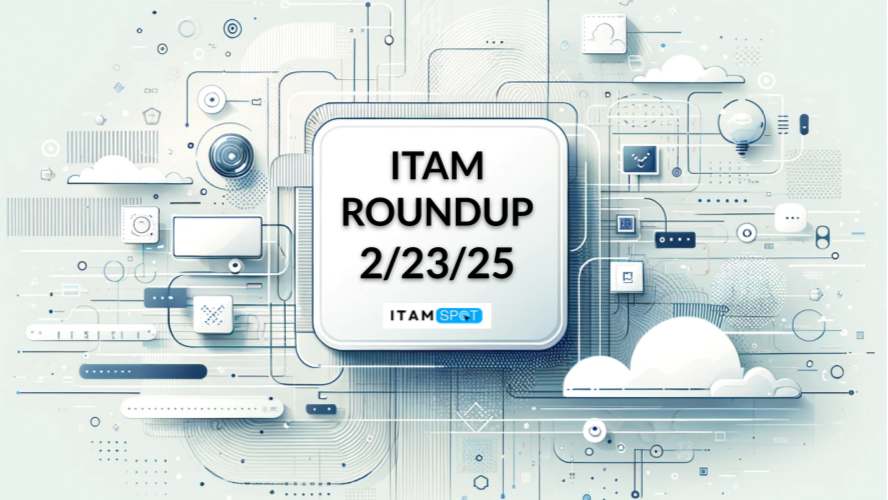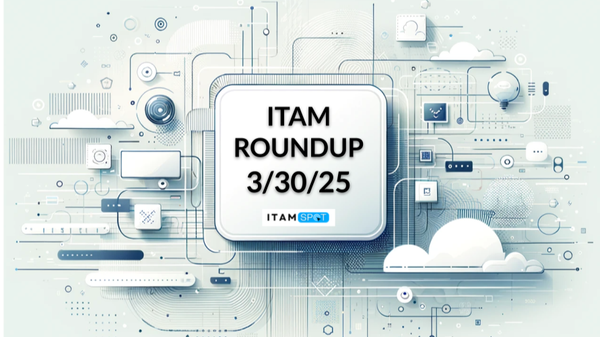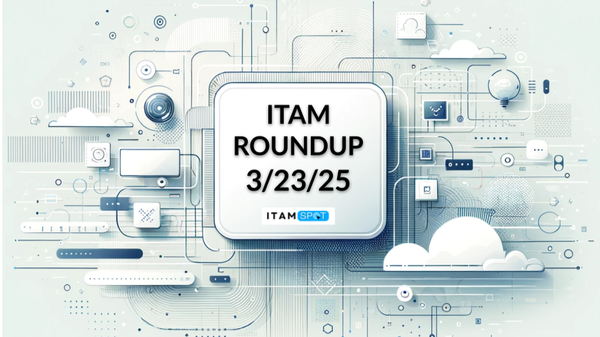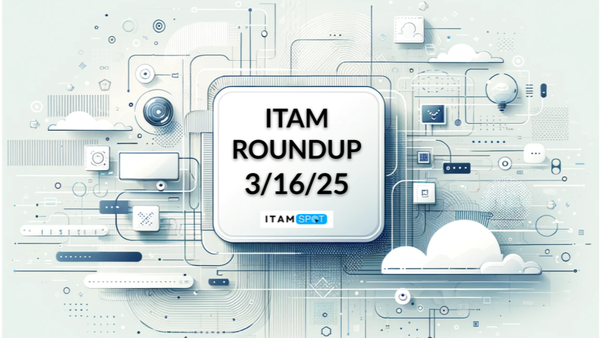The ITAM Roundup: 2/23/25
📰 News
Microsoft’s Majorana 1 chip carves new path for quantum computing
Microsoft introduced the Majorana 1 chip, the first quantum processor powered by a Topological Core architecture using topoconductors to create more stable and scalable qubits, potentially enabling quantum computers with a million qubits in years, not decades. This breakthrough leverages exotic Majorana particles and a newly developed materials stack to improve error resistance and digital control, simplifying quantum computing and making it more commercially viable. Microsoft’s advancements have positioned it as one of two companies in DARPA’s initiative to develop a fault-tolerant, utility-scale quantum computer, with potential applications in materials science, pollution reduction, and AI-driven discovery.
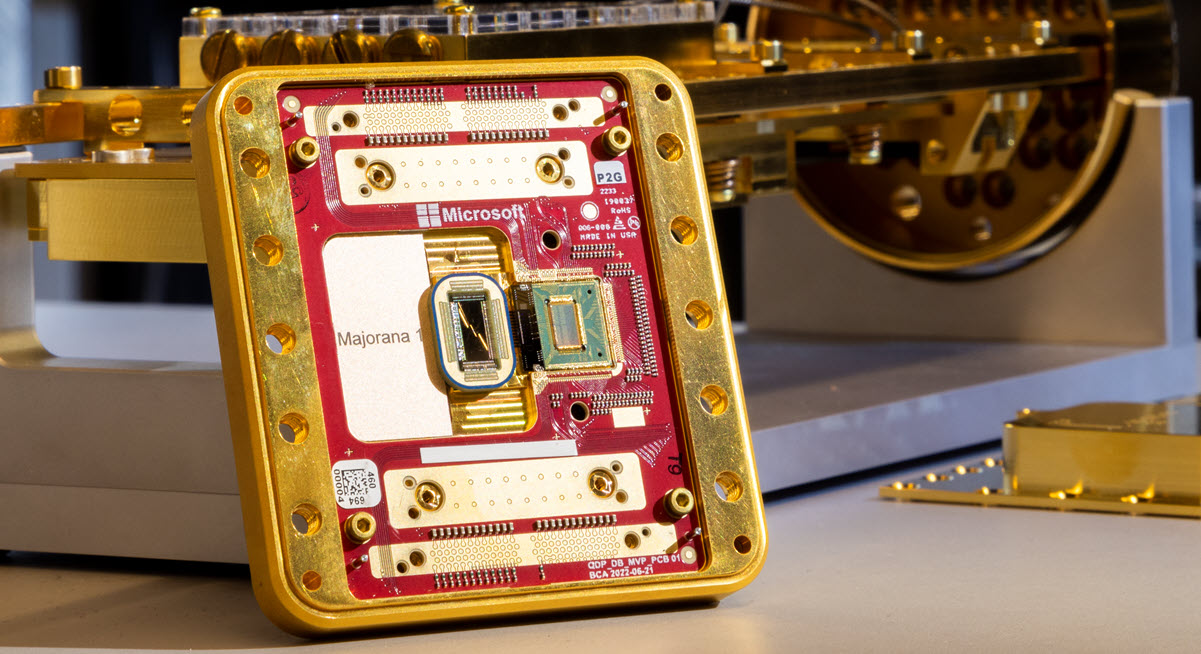
W8 SAM & ITAM Jobs
This week's SAM & ITAM job listings feature opportunities across various industries, including finance, healthcare, IT services, and government contracting, with positions ranging from entry-level to senior management. Companies hiring include OpenText, Zurich Insurance, Oracle, and East West Bank, offering roles such as Software Asset Manager, Compliance License Manager, and IT Asset Management Specialist. Positions are available globally, with options for remote, hybrid, and on-site work, catering to professionals with different experience levels.
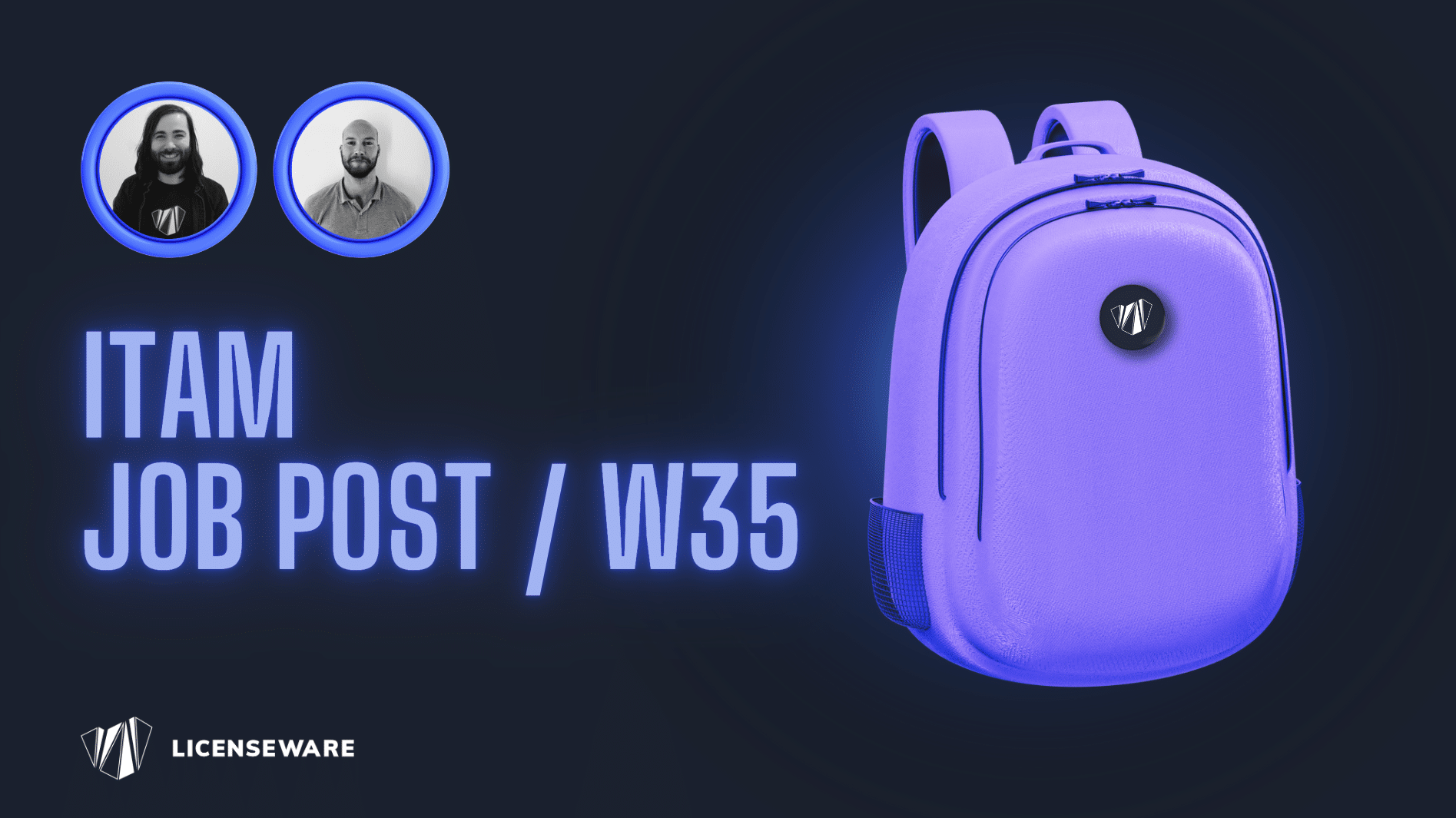
OpenAI reaches 400M weekly active users, doubles enterprise customer base
OpenAI has reached 400 million weekly active users, a 33% increase since December, and its enterprise customer base has doubled to 2 million paying users. The company is raising a $40 billion funding round, with SoftBank expected to lead, potentially doubling its valuation to $340 billion. However, OpenAI faces challenges in achieving profitability due to high hardware costs, with projections for a $5 billion loss in 2024 despite growing demand for products like ChatGPT Pro and its new o3 model.

Trump can't quickly or easily kill the CHIPS Act, but he can fire the workers funded by it
President Trump has expressed opposition to the CHIPS and Science Act, which funds semiconductor manufacturing and research in the U.S., and plans to cut nearly 500 staff at the National Institute of Standards and Technology (NIST), including those managing the $11 billion semiconductor R&D program. These layoffs could hinder NIST's ability to distribute funds for domestic semiconductor fabs and R&D, both key objectives of the bipartisan-backed CHIPS Act. While it remains unclear whether these cuts are politically motivated or part of broader federal staff reductions, they may delay the agency's work and buy time for Congress to reconsider the law.

Microsoft Azure faceplants in Norway, taking government services with it
Microsoft Azure experienced a significant outage in Norway, lasting over three hours, which impacted businesses and took down multiple government websites, including Regjeringen.no. Despite the widespread disruption, Azure's service health dashboard falsely showed that all systems were operating normally, causing frustration among users. The outage affected various services, including Cosmos DB, web apps, and Azure Virtual Desktop, and led to a lack of communication from Microsoft regarding the issue's resolution and recovery timeline.

📖 Tips
Optimize cloud costs: Using automation to avoid waste
Cloud cost optimization is a key goal for FinOps teams, and automation is essential to eliminate inefficiencies and prevent waste from recurring. At different FinOps maturity stages—Crawl, Walk, and Run—organizations can automate tasks such as shutting down unused resources, applying schedules to intermittently used instances, and rightsizing cloud resources. Advanced automation includes optimizing software licensing, managing commitments, and using tools to fine-tune Kubernetes environments for cost efficiency.

Oracle Java Soft Audits: Defense Strategies Under the Employee-Based Licensing Model
Oracle's shift to an employee-based Java SE licensing model in 2023 has significantly increased costs for businesses, requiring all employees to be licensed if any Oracle Java is used. This change has led to an increase in "soft audits," where Oracle informally requests data to identify unlicensed deployments, often leading to unexpected compliance costs. To mitigate risk, companies should proactively track Java usage, conduct internal audits, and strategically manage Oracle's audit process, including controlled communication, negotiation tactics, and exploring alternative solutions like OpenJDK.

How to overcome technology challenges with SHI’s integration services
SHI’s End-User Integration Center (EIC) streamlines large-scale enterprise device rollouts by handling custom configurations, security settings, and global IT asset tracking. Their OEM-certified experts pre-configure devices like laptops, AI PCs, and VR headsets to ensure a seamless, secure, and efficient user experience. With services like mobile device management (MDM) integration, enterprise-grade encryption, and pre-installed security updates, SHI helps organizations reduce setup delays, enhance security, and lower total cost of ownership.

Migration from VMware to Proxmox with Veeam
With Broadcom's acquisition of VMware leading to increased licensing costs, many businesses are migrating to alternative virtualization platforms like Proxmox VE. Veeam Backup & Replication (starting from version 12.2) simplifies this migration by offering full support for Proxmox, enabling seamless backup and restoration of VMs. The process involves adding Proxmox nodes to Veeam, performing a restore, and completing post-migration tasks like updating IP addresses and DNS settings.

Is your cloud environment truly optimized, and do you still need FinOps?
FinOps is an ongoing process that ensures cloud cost optimization remains effective even after initial improvements, helping organizations adapt to evolving needs, vendor updates, and infrastructure changes. It fosters collaboration between finance, engineering, and operations teams to enhance visibility, accountability, and cost efficiency while maintaining performance. By continuously monitoring automation, resource provisioning, and cloud configurations, FinOps prevents costly inefficiencies and ensures organizations stay proactive in managing their cloud investments.

🐛Bugs & Exploits
Apiiro unveils free scanner to detect malicious code merges
Apiiro has released two free open-source tools to detect and block malicious code in software projects, aimed at preventing supply chain attacks. These tools include a ruleset for Semgrep and Opengrep to identify suspicious code patterns, and PRevent, a GitHub-integrated scanner that flags malicious code in pull requests with high accuracy. While the tools are effective in detecting obfuscation techniques, arbitrary code execution, and data exfiltration, Apiiro plans to add deeper analysis features and AI-assisted scans in future updates.


